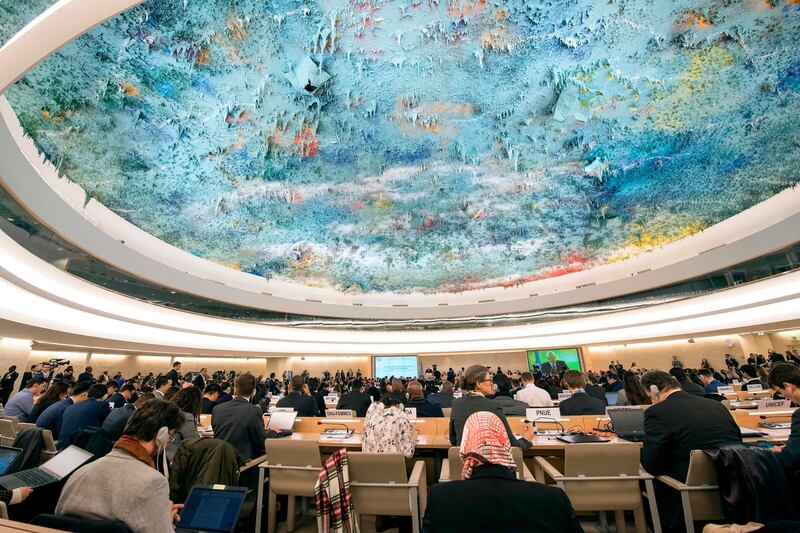The UAE, Saudi Arabia, Bahrain and Egypt have accused Doha of playing up its ongoing row with the quartet and accused the Qatari foreign minister of making a speech to the UN Human Rights Council that contained "many fallacies".
Mohammed bin Abdulrahman on Monday called on the council to take action over the quartet's months-long boycott of Doha, which he called "illegal".
The quartet is boycotting Qatar over its support for extremist groups and interference in the internal affairs of its neighbours.
The four countries used their right of reply at the council in Geneva, with Obaid Salem Al Zaabi, the UAE's Permanent Representative to the United Nations and Other International Organisations in Geneva, delivering a joint statement, UAE state news agency Wam reported on Wednesday.
"[We] would like to confirm Qatar's role in supporting extremist and terrorist ideologies and spreading the message of hatred and incitement of violence through the media platform," Mr Al Zaabi said.
"Our countries want Qatar to change its behaviour of supporting terrorist organisations [and to] immediately end its funding of these organisations. Through this international platform, we ask Qatar not to make Doha a haven for individuals promoting terrorist acts."
_________
Read more:
[ Saudi Arabia says Qatar continues to propagate hatred amid US efforts to resolve crisis ]
[ Quartet condemns UN report on Qatar boycott as 'unfounded' ]
_________
Mr Al Zaabi said the quartet countries would continue to practice "their sovereign right" of boycotting Qatar, stressing that this right was "guaranteed by international law".
He said the boycott was in defence of deliberate acts targeting the four countries' security, as well as intervention in their internal affairs and Doha's breach of the principle of good neighbourliness — an origin principle in international relations.
The UAE representative also said the Qatar row was a "secondary" and "minor" crisis that Doha was trying to "market" at regional and international forums as a "major international crisis".
The row should be solved within the context of the ongoing mediation led by the Emir of Kuwait, Sheikh Sabah Al Ahmed, he said, adding that these efforts have been receiving the full support of the leaders of the quartet countries.





